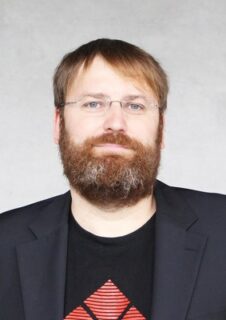Upcoming Talk: Prof. Dr. Lars Grunske on Benchmarking in Software Engineering Research with Specific Applications to Automated Software Testing
We will be hosting a talk on Benchmarking in Software Engineering Research with Specific Applications to Automated Software Testing in our NYT course. The NYT (Nailing Your Thesis) teaches students how to perform scientific research for a dissertation of final thesis. The talk is free and open to the public.
- by: Prof. Dr. Lars Grunske, Humboldt-Universität, Berlin
- about: Benchmarking in Software Engineering Research with Specific Applications to Automated Software Testing
- on: July 1st, 2024, 13:30 Uhr
- on: Zoom (link after registration)
- as part of: NYT Course
Abstract: This talk explores the role of benchmarking in software engineering research, with a focus on automated software testing. We discuss the creation and application of benchmarks to evaluate and enhance testing tools. The presentation highlights the impact of benchmarks on tool development and offers insights into best practices for effective benchmarking in the evolving landscape of software engineering.
Speaker: Lars Grunske is currently a Professor at the Department of Computer Science from the Humboldt-Universität in Berlin, Germany. He received his PhD degree in computer science from the University of Potsdam (Hasso-Plattner-Institute for Software Systems Engineering) in 2004. He was a Boeing Postdoctoral Research Fellow at the University of Queensland from 2004-2007, a lecturer at the Swinburne University of Technology, Australia from 2008-2011, Junior Professor at the University of Kaiserslautern from 2011-2012, and Professor at the University of Stuttgart from 2012-2015. He has active research interests in the areas modelling and verification of systems and software. His main focus is on automated analysis, mainly probabilistic and timed model checking and model-based dependability evaluation of complex software intensive systems.

